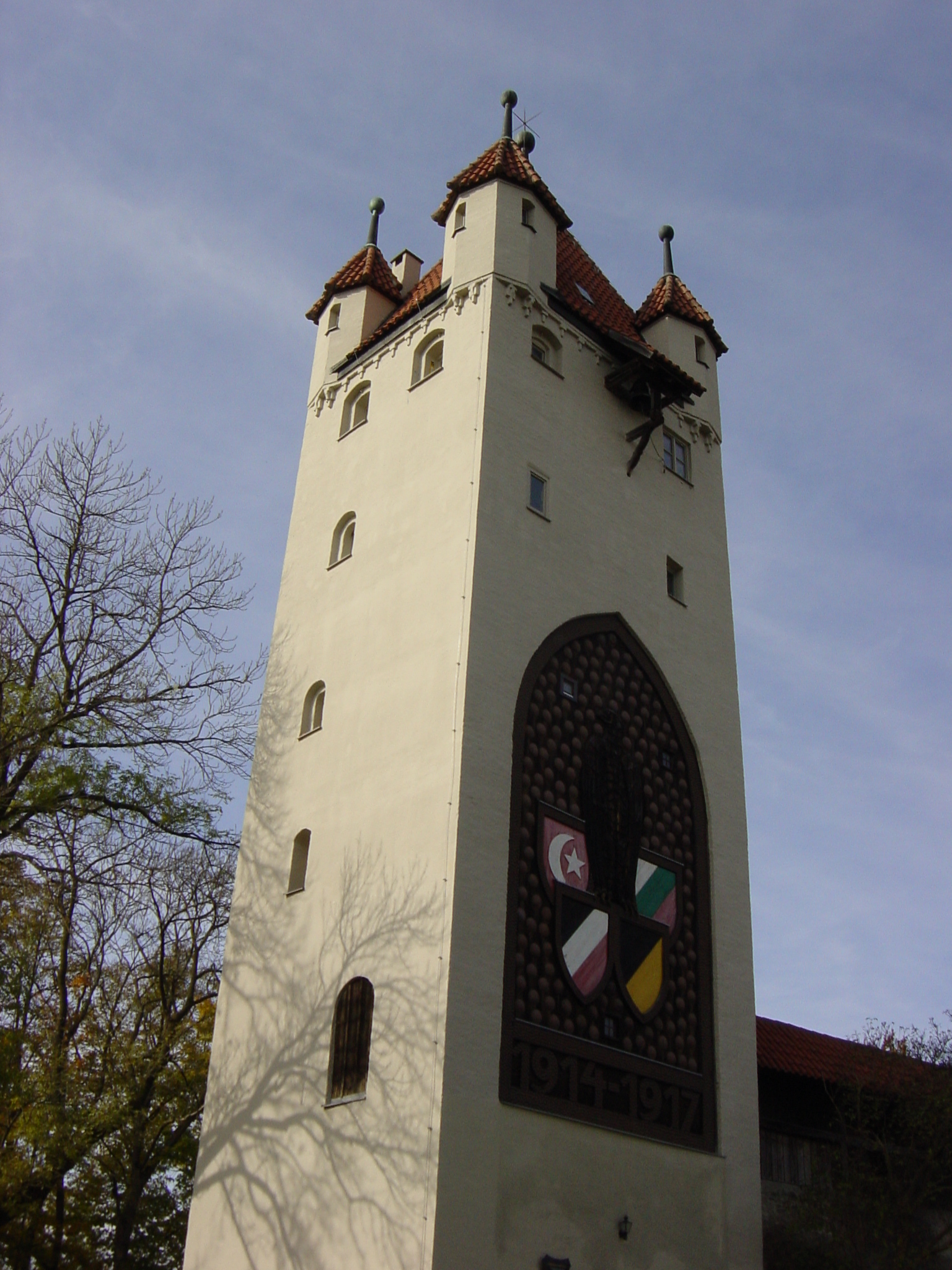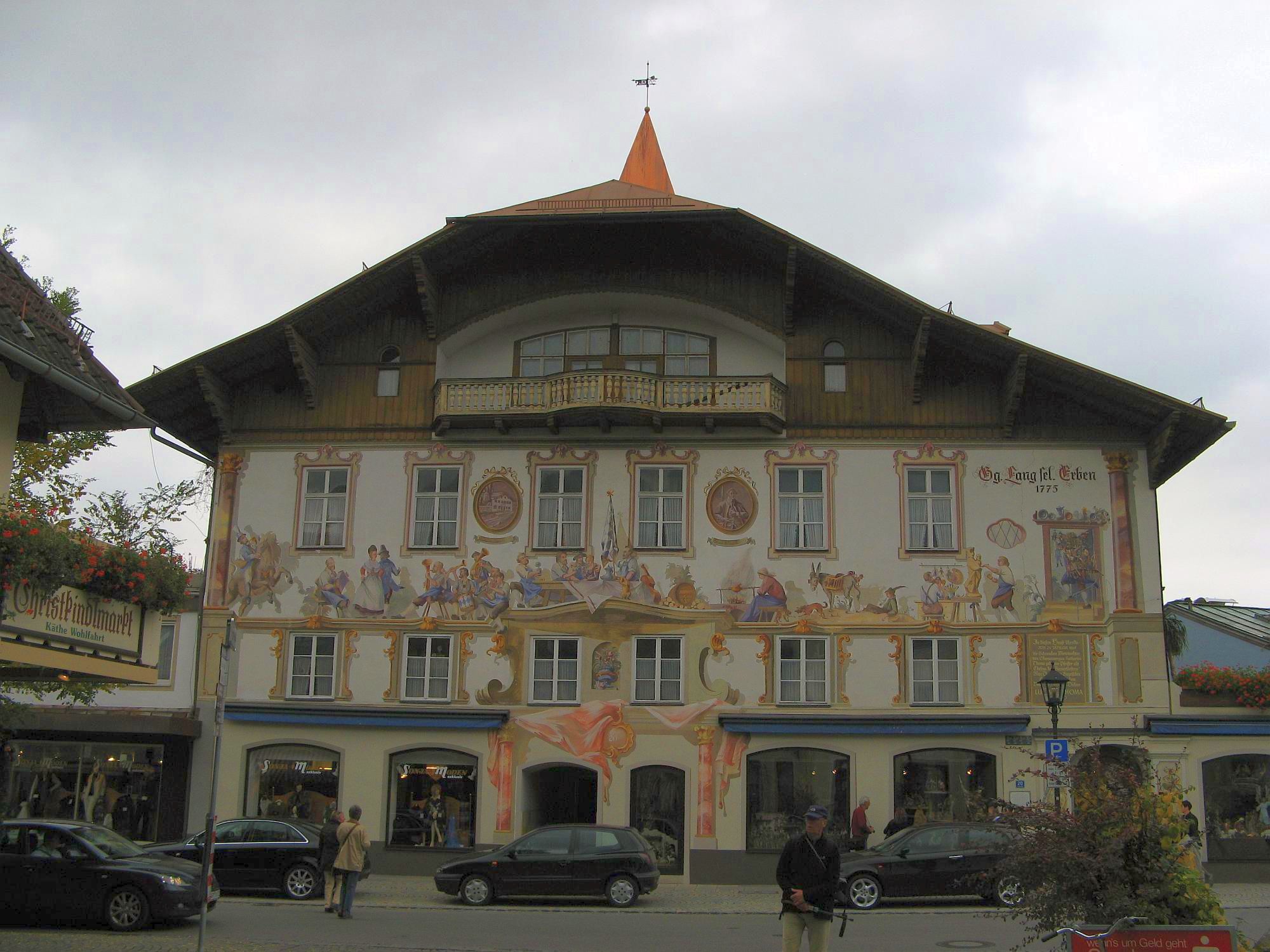|
Ludwig Ganghofer
Ludwig Ganghofer (7 July 1855 – 24 July 1920) was a German writer who became famous for his homeland novels. Biography He was born in Kaufbeuren, Kingdom of Bavaria, Bavaria, the son of forestry official August Ganghofer (1827–1900). His younger sister Ida (1863–1944) married the geologist and geographer Albrecht Penck in 1886, the geomorphologist Walther Penck was Ganghofer's nephew. He graduated from Gymnasium (Germany), gymnasium secondary school in 1873 and subsequently worked as a fitter in Augsburg engine works. In 1875, he entered Technical University of Munich, Munich Polytechnic as a student of mechanical engineering, but eventually changed his major to history of literature and philosophy, which subjects he studied in Ludwig Maximilian University of Munich, Munich, Humboldt University of Berlin, Berlin and Leipzig University, Leipzig. In 1879, he was awarded a doctorate from the Leipzig University. Ganghofer wrote his first play "Der Herrgottschnitzer von Ammergau ... [...More Info...] [...Related Items...] OR: [Wikipedia] [Google] [Baidu] |
Kaufbeuren
Kaufbeuren (; Bavarian: ''Kaufbeiren'') is an independent town in the ''Regierungsbezirk'' of Swabia, Bavaria. The town is an enclave within the district of Ostallgäu. Districts Kaufbeuren consists of nine districts: * Kaufbeuren (town core incl. historical town) * Kaufbeuren-Neugablonz * Oberbeuren * Hirschzell * Kleinkemnat * Großkemnat * Märzisried * Ölmühlhang * Sankt Cosmas MayorsStefan Bosse (CSU) is the Lord Mayor of Kaufbeuren since November 2004. He was reelected in March 2014 with 57.48% of the votes and again in March 2020 with 54.5% of the votes. Landmarks * Town hall (built 1879–1881)Crescentiakloster (founded 1150) * Historical town with partia ... [...More Info...] [...Related Items...] OR: [Wikipedia] [Google] [Baidu] |
Vienna
en, Viennese , iso_code = AT-9 , registration_plate = W , postal_code_type = Postal code , postal_code = , timezone = CET , utc_offset = +1 , timezone_DST = CEST , utc_offset_DST = +2 , blank_name = Vehicle registration , blank_info = W , blank1_name = GDP , blank1_info = € 96.5 billion (2020) , blank2_name = GDP per capita , blank2_info = € 50,400 (2020) , blank_name_sec1 = HDI (2019) , blank_info_sec1 = 0.947 · 1st of 9 , blank3_name = Seats in the Federal Council , blank3_info = , blank_name_sec2 = GeoTLD , blank_info_sec2 = .wien , website = , footnotes = , image_blank_emblem = Wien logo.svg , blank_emblem_size = Vienna ( ; german: Wien ; ba ... [...More Info...] [...Related Items...] OR: [Wikipedia] [Google] [Baidu] |
Ludwig Thoma
Ludwig Thoma (; 21 January 1867 in Oberammergau – 26 August 1921 in Tegernsee) was a German author, publisher and editor, who gained popularity through his partially exaggerated description of everyday Bavarian life. After graduation from the Imperial Latin School in Landstuhl (today: Sickingen- Gymnasium Landstuhl), he first studied Forestry in Aschaffenburg, then Law until 1893 in Munich and Erlangen. Subsequently, he settled down as a lawyer, at first in Dachau, later in Munich. After 1899, he worked for the magazine ''Simplicissimus'' and published humorous narrations, comedies, novels and stories. Thoma satirized Bavarian rural and small-town life. His serious peasant novels ''Andreas Vöst'' (1905), ''Der Wittiber'' (1911), and ''Der Ruepp'' (1922), as well as his humorous collections ''Assessor Karlchen'' (1900), ''Lausbubengeschichten'' (''Tales of a Rascal'', 1904), and ''Tante Frieda'' (''Aunt Frieda'', 1906), are characterized by authenticity of regional language ... [...More Info...] [...Related Items...] OR: [Wikipedia] [Google] [Baidu] |
Paul Von Hindenburg
Paul Ludwig Hans Anton von Beneckendorff und von Hindenburg (; abbreviated ; 2 October 1847 – 2 August 1934) was a German field marshal and statesman who led the Imperial German Army during World War I and later became President of Germany from 1925 until his death in 1934. During his presidency, he played a key role in the Nazi seizure of power in January 1933 when, under pressure from advisers, he appointed Adolf Hitler as Chancellor of Germany. Hindenburg was born to a family of minor Prussian nobility in Posen. Upon completing his education as a cadet, he enlisted in the Third Regiment of Foot Guards as a second lieutenant. He then saw combat during the Austro-Prussian and Franco-Prussian wars. In 1873, he was admitted to the prestigious '' Kriegsakademie'' in Berlin, where he studied for three years before being appointed to the Army's General Staff Corps. Later in 1885, he was promoted to the rank of major and became a member of the Great General Staff. Following a f ... [...More Info...] [...Related Items...] OR: [Wikipedia] [Google] [Baidu] |
Wilhelm II, German Emperor
Wilhelm II (Friedrich Wilhelm Viktor Albert; 27 January 18594 June 1941) was the last German Emperor (german: Kaiser) and King of Prussia, reigning from 15 June 1888 until his abdication on 9 November 1918. Despite strengthening the German Empire's position as a great power by building a powerful navy, his tactless public statements and erratic foreign policy greatly antagonized the international community and are considered by many to be one of the underlying causes of World War I. When the German war effort collapsed after a series of crushing defeats on the Western Front in 1918, he was forced to abdicate, thereby marking the end of the German Empire and the House of Hohenzollern's 300-year reign in Prussia and 500-year reign in Brandenburg. Wilhelm II was the son of Prince Frederick William of Prussia and Victoria, German Empress Consort. His father was the son of Wilhelm I, German Emperor, and his mother was the eldest daughter of Queen Victoria of the United Kingdom and ... [...More Info...] [...Related Items...] OR: [Wikipedia] [Google] [Baidu] |
Propagandistic
Propaganda is communication that is primarily used to influence or persuade an audience to further an agenda, which may not be objective and may be selectively presenting facts to encourage a particular synthesis or perception, or using loaded language to produce an emotional rather than a rational response to the information that is being presented. Propaganda can be found in news and journalism, government, advertising, entertainment, education, and activism and is often associated with material which is prepared by governments as part of war efforts, political campaigns, health campaigns, revolutionaries, big businesses, ultra-religious organizations, the media, and certain individuals such as soapboxers. In the 20th century, the English term ''propaganda'' was often associated with a manipulative approach, but historically, propaganda has been a neutral descriptive term of any material that promotes certain opinions or ideologies. Equivalent non-English terms have also lar ... [...More Info...] [...Related Items...] OR: [Wikipedia] [Google] [Baidu] |
Munich Literary Society
Munich ( ; german: München ; bar, Minga ) is the capital and most populous city of the German state of Bavaria. With a population of 1,558,395 inhabitants as of 31 July 2020, it is the third-largest city in Germany, after Berlin and Hamburg, and thus the largest which does not constitute its own state, as well as the 11th-largest city in the European Union. The city's metropolitan region is home to 6 million people. Straddling the banks of the River Isar (a tributary of the Danube) north of the Bavarian Alps, Munich is the seat of the Bavarian administrative region of Upper Bavaria, while being the most densely populated municipality in Germany (4,500 people per km2). Munich is the second-largest city in the Bavarian dialect area, after the Austrian capital of Vienna. The city was first mentioned in 1158. Catholic Munich strongly resisted the Reformation and was a political point of divergence during the resulting Thirty Years' War, but remained physically unto ... [...More Info...] [...Related Items...] OR: [Wikipedia] [Google] [Baidu] |
County Of Tyrol
The (Princely) County of Tyrol was an estate of the Holy Roman Empire established about 1140. After 1253, it was ruled by the House of Gorizia and from 1363 by the House of Habsburg. In 1804, the County of Tyrol, unified with the secularised prince-bishoprics of Trent and Brixen, became a crown land of the Austrian Empire. From 1867, it was a Cisleithanian crown land of Austria-Hungary. Today the territory of the historic crown land is divided between the Italian autonomous region of Trentino-Alto Adige/Südtirol and the Austrian state of Tyrol. The two parts are today associated again in the Tyrol–South Tyrol–Trentino Euroregion. History Establishment At least since German king Otto I had conquered the former Lombard kingdom of Italy in 961 and had himself crowned Holy Roman Emperor in Rome, the principal passes of the Eastern Alps had become an important transit area. The German monarchs regularly travelled across Brenner or Reschen Pass on their Italian expedi ... [...More Info...] [...Related Items...] OR: [Wikipedia] [Google] [Baidu] |
Leutasch
Leutasch is a municipality in the northern part of the district Innsbruck-Land in the Austrian state of Tyrol about 30 km northwest of Innsbruck and 10 km northwest of Seefeld in Tirol Geography The village lies in the Leutaschtal, a high valley that extends for over 16 kilometres from the Hohe Munde to the northeast along the Wetterstein Mountains and ends at the Leutasch Gorge, which forms the border with Germany at Mittenwald. The valley is framed by other prominent peaks such as the Hochwanner, the Dreitorspitze and the Arnspitze. The valley is a large rock basin formed by glaciers of the Ice Age and filled with gravel and lake sediments. The Leutascher Ache river flows through it. The Gaistal valley leads between the Wetterstein and Mieming Chain to the west to the Ehrwald Alm. Leutasch is protected to the south from the warm föhn and to the north from the cold by the Wetterstein. From the west, snow clouds have easy access through the Gaistal valley. ... [...More Info...] [...Related Items...] OR: [Wikipedia] [Google] [Baidu] |
Alps
The Alps () ; german: Alpen ; it, Alpi ; rm, Alps ; sl, Alpe . are the highest and most extensive mountain range system that lies entirely in Europe, stretching approximately across seven Alpine countries (from west to east): France, Switzerland, Italy, Liechtenstein, Austria, Germany, and Slovenia. The Alpine arch generally extends from Nice on the western Mediterranean to Trieste on the Adriatic and Vienna at the beginning of the Pannonian Basin. The mountains were formed over tens of millions of years as the African and Eurasian tectonic plates collided. Extreme shortening caused by the event resulted in marine sedimentary rocks rising by thrusting and folding into high mountain peaks such as Mont Blanc and the Matterhorn. Mont Blanc spans the French–Italian border, and at is the highest mountain in the Alps. The Alpine region area contains 128 peaks higher than . The altitude and size of the range affect the climate in Europe; in the mountains, precipitation ... [...More Info...] [...Related Items...] OR: [Wikipedia] [Google] [Baidu] |
Johann Strauss II
Johann Baptist Strauss II (25 October 1825 – 3 June 1899), also known as Johann Strauss Jr., the Younger or the Son (german: links=no, Sohn), was an Austrian composer of light music, particularly dance music and operettas. He composed over 500 waltzes, polkas, quadrilles, and other types of dance music, as well as several operettas and a ballet. In his lifetime, he was known as "The Waltz King", and was largely responsible for the popularity of the waltz in Vienna during the 19th century. Some of Johann Strauss's most famous works include "The Blue Danube", "Kaiser-Walzer" (Emperor Waltz), "Tales from the Vienna Woods", "Frühlingsstimmen", and the "Tritsch-Tratsch-Polka". Among his operettas, ''Die Fledermaus'' and ''Der Zigeunerbaron'' are the best known. Strauss was the son of Johann Strauss I and his first wife Maria Anna Streim. Two younger brothers, Josef and Eduard Strauss, also became composers of light music, although they were never as well known as their brot ... [...More Info...] [...Related Items...] OR: [Wikipedia] [Google] [Baidu] |






.jpg)